In disputed Workers’ Compensation cases in California, a QME is asked to help settle the dispute. The first question addressed in a report is whether or not there was, in fact, an industrial injury. Causation is shorthand for an injury that was sustained arising out of employment or in the course of employment. Causation determines the injured worker’s entitlement to the entirety of medical treatment to be covered by their employer.
An injury arising out of employment (AOE) indicates that the injury arose from employment but did not occur during usual job duties, such as an injury sustained during a mandatory company lunch outing. An injury sustained in the course of employment (COE) during usual job duties indicates there is proof the injury occurred at the workplace. A QME is responsible for finding causation in the course of employment, whereas a judge is responsible for determining causation arising out of employment. In these cases, a QME will defer to the Trier of Fact.
If an employee has a pre-existing injury that was allegedly made worse by an accident or incident in the workplace, this is considered an aggravation. Aggravation is the permanent worsening of a pre-existing condition by 1% or more due to an industrial injury, which is now considered a new injury. This constitutes additional permanent disability and is covered by Workers’ Compensation. An exacerbation refers to an industrially-related temporary flare-up of an existing condition with return to baseline. There is no additional permanent disability in these circumstances and exacerbations are not covered by Workers’ Compensation.
In California, an injury is considered to have industrial causation if the job is only 1% of an applicant’s disability in order to be compensable. Medical evidence must support the claimed causal connection with reasonable medical probability. A specific injury occurs as the result of one incident or exposure which causes disability or need for medical treatment. A cumulative trauma results from repetitive job duties extending over a period of time leading to injury. These injuries are typically more difficult to diagnose as they often develop gradually over a period of weeks, months or even years. Examples of cumulative trauma can include hearing loss from prolonged exposure to loud noise as well as carpal tunnel syndrome from the repetitive strain resulting from prolonged performance of certain job duties.
In addition to temporal proximity, QMEs assess the medical plausibility of the causal relationship based on established medical principles and scientific evidence. A QME’s opinion must be predicated on reasonable medical probability, supported by substantial medical evidence. Speculative opinions will be rejected. The nature of the injury or condition, pre-existing medical history, and predisposing factors are considered as well as any intervening events that may have influenced the outcome. QMEs strive to differentiate between work-related factors and non-occupational contributors to ensure a comprehensive and accurate assessment of causation.
Causation is a requirement for compensability of an injury or illness under Workers’ Compensation law. If causation is established, the injured worker is entitled to compensation. The five types of compensation allowed by Workers Compensation are medical treatment, temporary disability, permanent disability, death benefits, and supplemental job displacement benefits. A failure to prove causation will result in the denial of benefits. A QME’s responsibility is to determine the nature and extent of injury leading to allowable benefits after causation has been found.


